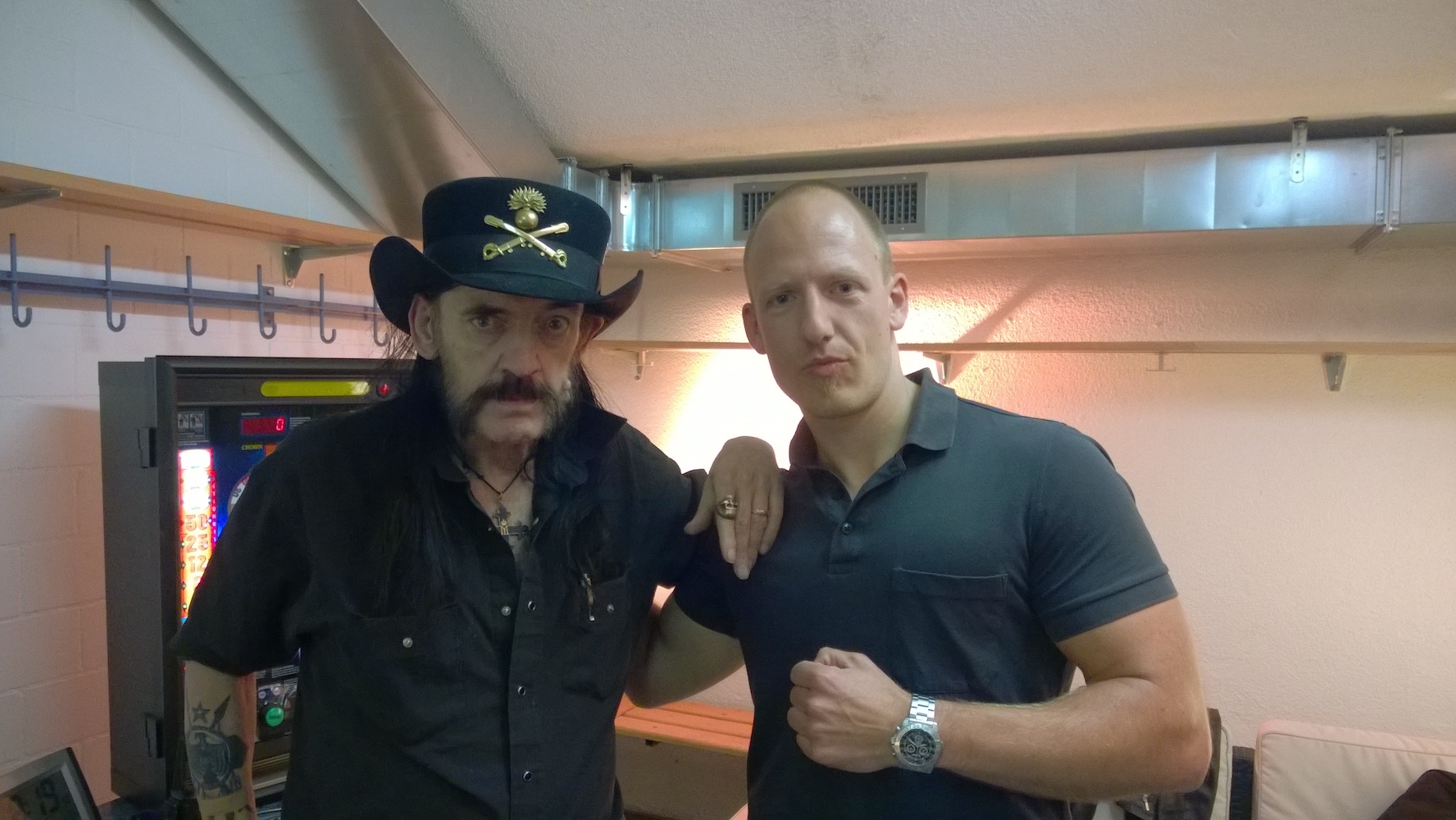Two years ago, the improbable pope of heavy metal, Lemmy Kilmister, passed away. Improbable, because Lemmy always stressed that Motörhead was not a metal band: "We play rock'n'roll." It says a great deal about the metal scene that it chose a musician as its figurehead who declined to be its figurehead. It's a long way to the top, if you wanna rock'n'roll. But it's just a small step from iron to irony.
I met and interviewed Lemmy several times between 1999 and 2014. Every year, I went to see Motörhead live. Bought all the records. Learned lyrics by heart. Published roughly a dozen articles about the band and Lemmy. And as far as I can tell, Lemmy's life was all about iron irony. At best, irony is not wishy-washy escapism but a strong attitude and a challenging lifestyle. Ironists know that life is not clean, pure, and coherent, but dirty, chaotic, and paradoxical. Iron ironists do not only know this. They live it. They are paradoxical. They are dirty. They are chaotic because they know that all attempts to purify human existence lead to totalitarianism. Being ironical thus means being true to the complexities of life. And I guess that's why Lemmy lived a life of paradox and controversy.

When you met him, you could still feel the legacy of the hippie era. Yet he combined it with the apocalyptic doom of the metal era. He was a punk and a slacker but he also ran a long-lasting family business called Motörhead. He was fascinated with the totalitarian systems of the 20th century and collected all sorts of dubious memorabilia. Yet he did not approve of totalitarianism. At heart, he was a conservative anarchist and a libertarian. Neither the German Nazis nor the Italian Fascists nor the Russian Communists were conservatives, anarchists, or libertarians. For Lemmy, collecting Nazi memorabilia meant keeping your enemies close.
The mindset of Motörhead was basically a liberal one: not left versus right, good versus bad, or progressive versus conservative, but individual freedom and personal responsibility versus collectivism. Motörhead was directed against all kinds of patronizing state policies. Every time I interviewed Lemmy, he stressed that no matter which political system or ideology – in the end, they will all mess up. I did not fully agree. But I got the message: be careful with your affiliations!
In my obituary for the Süddeutsche Zeitung in 2015, I wrote half-jokingly that now that Lemmy is deceased, darker times are ahead. Of course I did not refer to Lemmy as a private person but to Lemmy as a symbolic public figure; as a myth, if you like. For Lemmy, one of the most important things in life was to be true – true to your own miserable existence, above all. Don't try to convert it into a sublime and noble work of art. It'll only look ridiculous. In our conversations, he would always emphasize that one should not seek one's salvation in faith or politics or hope or ideology, but that one should think for oneself, look at the world in a disenchanted way, enjoy life as long as possible – and never lose one's sense of humor. Because after all, life's a gigantic joke, isn't it? In this regard, Lemmy stood in the tradition of the radical materialist Enlightenment of the 18th century.
However, what we experience at the moment, in fact in many countries, is the return of ideology, lulling faith, and barefaced lies. "Irony is a dead scence", The Dillinger Escape Plan predicted already in 2002. Nationalism, religious fundamentalism, flimsy neoliberalism, devoutness to technology, and collectivist movements are in full swing. Anxiety about the future and a longing for safety and clean-cut identities shape the political and cultural scene. Accordingly, irony is regarded as a threat to stability; as a postmodern shenanigan. Against this background, the legacy of Lemmy consists of much more than some of the greatest rock songs ever written. His iron irony and his apocalyptic joy of living might also serve as counter models to a new culture of fear, inhibition, and conformism.